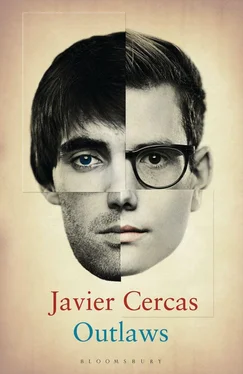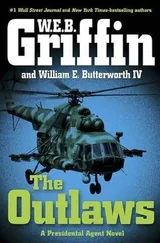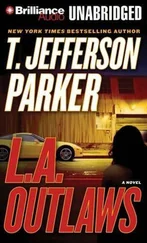‘I requested Gerona and they sent me here.
‘I remember the day I arrived as if it were yesterday. I’d come on the train with five other new recruits and we went straight from the station to the Hotel Condal, where they had reserved rooms for us. It must have been seven or seven-thirty in the evening and, since it was February, night had already fallen and everything was dark. That was my first impression of Gerona: the sensation of darkness; the second was the sensation of damp; the third was the sensation of dirtiness; the fourth (and most intense) was the sensation of loneliness: a complete and absolute loneliness, such as I hadn’t even felt in my first days in Madrid, alone in my room in the boarding house on Jacometrezo. When we got to the hotel we unpacked, had a quick wash and went out to find some dinner. One of the other recruits was from Barcelona and knew the city, so we followed him. Looking for a restaurant we walked up Jaume I, crossed the Marquès de Camps and Sant Agustí Plazas, past the statue of Álvarez de Castro and the city’s defenders, which I didn’t see or didn’t notice that night; then we crossed the Onyar and in the dark could just barely make out its filthy water and the sadness of the façades overlooking the river, covered in clothes hung out to dry; then we wandered through the old city and walked the Rambla from bottom to top and crossed the Plaza de Cataluña and, when we were about to give up and say to hell with it all and go to bed on empty stomachs after that depressing stroll and that exhausting trip, we came across a place that was open very close to the hotel. It was the Rhin Bar. There, after haggling with the owner, who was closing and didn’t want to serve us, we drank a glass of milk. So I managed to go to bed that night not completely starving, and as I did so I thought I’d made a mistake and that as soon as I could I’d request a transfer and leave that godforsaken city.
‘I never did: I didn’t request a transfer or return to Cáceres or ever leave this city. Now it’s my city. My wife’s from here, my children are from here, my father and mother are buried here, and I love it and hate it more or less the way a person loves and hates what matters most to him. Although, on reflection, it’s not true: the truth is that I love this city a lot more than I hate it; how do you think I’ve put up with it for so long? Sometimes I even feel proud of it, because I’ve done as much as the next guy to make it what it is today; and believe me: it’s a lot better than it was when I got here. . Back then, as I’ve already told you, it was a horrible city, but still, I soon got used to it. I lived with my five friends in a rented flat on Montseny Street, in the Santa Eugènia neighbourhood, and I worked at the station on Jaume I, near Sant Agustí Plaza. Gerona has always been as calm as a millpond, but it was even more so back then, when Franco hadn’t yet died, so as I’d expected, my work was much easier and less dangerous than what I’d done during my practical training. I was under the command of the deputy superintendent in charge of the Criminal Investigation Squad (Deputy Superintendent Martínez) and a veteran inspector in charge of one of the two groups the squad was divided into (Police Inspector Vives). Martínez was a good person and a good cop, but I soon discovered that Vives, who could be a lot of fun, deep down was a brainless thug. Why should I lie to you: there were lots of cops like that then. But luckily none of the guys with whom I had to share the flat and the squad, because I was living with them all hours of the day: we spent our mornings at the station, had lunch at Can Lloret, Can Barnet or El Ánfora, in the afternoons we walked our beats, at night we slept under the same roof and on our days off we tried to amuse ourselves together, something that in the Gerona of those days was almost more difficult than doing a good job. It’s true that the resources the Squad had at its disposal were very sparse (we only had, for example, two undercover cars, which everyone recognized anyway because they were always parked in front of the station), but we didn’t really need that much more either, because there was very little crime in the city and it was all concentrated in the red-light district, and that made it pretty easy to keep it under surveillance: all the crooks congregated in the district, all the jobs were cooked up in the district, and in the district, sooner or later, everyone knew everything about everyone. So all we needed to do was pass through the red-light district every evening and every night to control most of what went on in the city without too much difficulty.’
‘And that’s where you met El Zarco?’
‘Exactly: that’s where I met him.’
‘As I told you before: at the age of sixteen I’d heard of the red-light district, although the only thing I knew about it was that it was not a highly recommended place and was on the other side of the river, in the old part of the city. In spite of my ignorance, the first time I went to La Font I didn’t get lost.
‘That afternoon I took the Sant Agustí bridge across the Onyar, and once I was in the old quarter I turned left on Ballesteries Street, continued up Calderas and, as I left the Church of Sant Fèlix behind on my right and turned into La Barca Street, realized I’d arrived in the district. I realized that from the stench of garbage and piss rising up like a thick waft from the paving stones heated by the siesta-hour sunshine; also from the people at the corner of Portal de la Barca, taking advantage of the stingy shade those decrepit buildings cast: an old man with sucked-in cheeks, a couple of sinister-looking adults, three or four quinquis in their twenties, all smoking and holding glasses of wine or bottles of beer. I passed them without looking at them and once I’d crossed Portal de la Barca I saw the Sargento bar; next door to it was La Font. I stopped at the door and looked through the glass. It was a small place, long and narrow, with a bar on the left and a space that ran along in front of it towards the back where it opened out into a little room. The place was almost empty: there were a few tables in the little back room, but I didn’t see anybody sitting at any of them; a couple of customers were chatting by the bar; behind the bar a woman was rinsing out glasses in the sink; above the woman, stuck on the wall, a sign read: “Smoking joints strictly forbidden”. I didn’t dare go in and kept going along La Barca to the corner of Bellaire, the border of the district. I hung around there for a good long while, between the railway overpass and Sant Pere Church, wondering whether I should go home or try again, until at some point I gathered my courage, returned to La Font and went in.
‘There were quite a few more people in the bar now, although not Tere or Zarco. A bit intimidated, I planted myself at the end of the bar, near the door, and the landlady — a grim-faced redhead in a stain-covered apron — soon came over and asked me what I wanted; I asked for Zarco and she said he hadn’t arrived yet; then I asked if she knew when he was going to get there and she told me she didn’t; then she stood there looking at me. What’s wrong? she finally said. Aren’t you going to order anything? I asked for a Coca-Cola, paid for it and began to wait.
‘It wasn’t long before Tere and Zarco showed up. As soon as they came through the door of La Font they saw me; as soon as they saw me, Tere’s face lit up. Zarco patted me on the back. Fuck, Gafitas! he said. About time, eh? They took me to the back of the place and we sat at a table where two young guys were sitting: one, freckled and with almond-shaped eyes, they called Chino; the other chain-smoked constantly and was very small and very nervous, had a face full of pimples and they called him Colilla, or cigarette butt. Zarco made me sit between him and Tere, and while he was ordering beers from the landlady, Lina appeared, a blonde in a miniskirt and fuchsia-coloured sneakers who, I later found out, was Gordo’s girlfriend. No one introduced me to anyone and no one said anything to me: Tere was talking to Lina, Colilla and Chino talked to Zarco; Gordo and Tío didn’t even give any sign of recognizing me when they showed up after a while. I felt totally out of place, but never for a minute did I consider leaving.
Читать дальше












